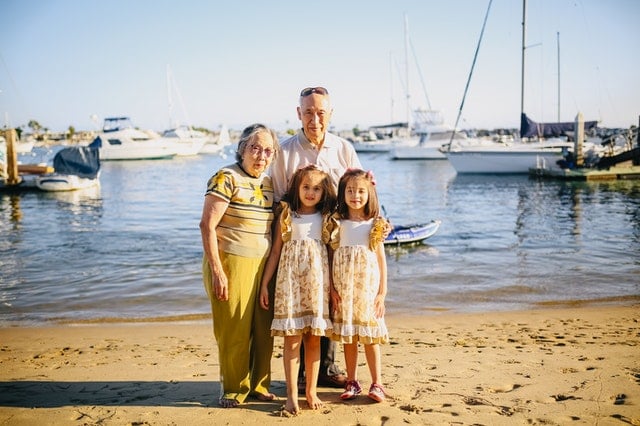Engaging in 4th of July festivities with your loved one living with dementia might seem impossible. But Dr. Alexis Eastman tells caregivers it doesn’t have to be.
Fireworks, large family gatherings, parades mark a special holiday in the U.S. — Independence Day or July 4th. But if you are caring for someone living with dementia, it can be a uniquely challenging event to navigate.
As a caregiver, you might be wondering how to bring joy to your loved one and include them in the festivities, all while understanding the reality that the day will be filled with loud noises, traffic, large crowds, and changes to your daily routine. Dr. Alexis Eastman, a clinical associate professor at The University of Wisconsin School of Medicine, shares best practices for navigating the upcoming holiday in a dementia-inclusive way.
“One thing to acknowledge in all of this is that there are no good decisions. There’s only good enough decisions,” said Eastman.
1. Be rule-bound by your routine
Many people living with dementia can experience mood changes, fatigue, or irritability during different times of the day. As a caregiver, you may be familiar with what times are more challenging for your loved one and already have a schedule in place that mitigates these fluctuations. Many people with Alzheimer’s experience sundowning — a certain set of worsening behaviors and psychological changes that typically intensify around sundown.
Plan to do your largest celebratory activity during a time of the day when your loved one is typically at their best. If you’ve noticed they experience behavioral changes in the evenings, plan a lunchtime picnic or small celebration. People living with Alzheimer’s can become easily confused by sudden changes in their routine, so mimicking a typical routine such as breakfast, lunch and even a nap could be helpful.
Eastman recommends having a quiet nap place picked out, regardless of your travel plans. “Your brain uses the vast majority of your calories in a given day, and having a nap space is a great thing to have in a house. Setting that aside is important,” said Eastman.
2. Avoid fireworks
Besides the large crowds they attract, fireworks should also be avoided due to their loud sounds. People living with dementia may become startled or irritated by loud, sudden sounds. Fireworks can also evoke stress in people who are war veterans and may associate the sound with hearing gunshots.
Instead of going to a live fireworks display, do an indoor activity with your loved one like coloring, looking at old photo albums, listening to music or playing a game. If you live in an area where you will hear fireworks even indoors, prepare your loved one in advance throughout the day. Let them know there will be fireworks at a specific time and offer reassurance that you will be together indoors.
3. Keep it small
Many people enjoy spending holidays with family and friends. Keep in mind that large groups can sometimes be a stressful environment for both the person living with dementia and their caregiver. Large groups can be disorienting to someone with dementia and could lead to overstimulation. Due to forgetfulness, your loved one may be surrounded by close family at your celebration but unable to recall who they are.
For caregivers, the prospect of explaining your loved one’s situation to extended family and friends may feel draining and daunting. “I think one of the pitfalls you run into is that if someone is from out of town, and they know your person… the difference in how they’ve changed may be shocking,” said Eastman.
If you are debating inviting a large group to the festivities, Eastman provides some insight on how to set yourself up for success: “It can be worth sending an email ahead of time to say, ‘Hey, so glad you’re coming. You may notice that mom is different than the last time you saw her, and this is what you can expect.’ That kind of preparation can be very valuable.”



